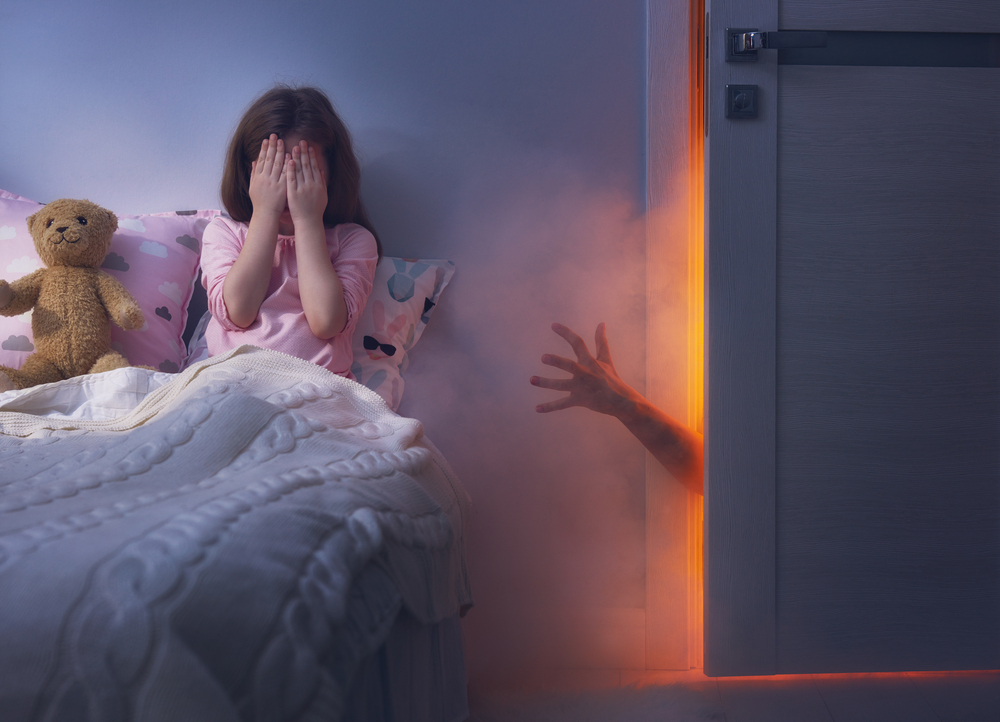Night terrors are more terrifying for the parents are they are for the children. For those of you that may not know, night terrors are different to nightmares in the way that your child will be unable to move when they ‘awaken’, the reason for this is that they are stuck in a sort of limbo between asleep and awake. It’s best you know what you’re dealing with when it comes to night terrors so we’re going to give you a run-down of exactly what is it you’re dealing with and better educate you on how to handle these situations, sound good?
What do night terrors look like?
When your child is experiencing a night terror many different things can happen, from the more lowkey situations where they start to murmur or mumble something to the more dramatic were they jolt up in bed and scream at the top of their lungs. Something a child can thrash and this can be terrifying for a parent as it can be mistaken for a seizure. Your child will typically not respond to you being there, even if you talk to them, because they aren’t truly awake. The can last from anything to a few minutes to even an hour.
Who do they usually affect?
Children usually grow out of night terrors by the age of 12, though they are actually quite common in young children – with a study finding that 40% of young children aged between 2 and 6 years old are actually afflicted by them.
Nightmares and night terrors – what’s the difference?
To put it simply, in the morning if your child looks more shaken they’ve had a nightmare, if you do, then it’s a night terror. This is because since the child is in a dazed state when they are in a night terror, they have no recollection of it when they wake up. Which is great for them, I suppose, but not very nice for you having to look at it.
What to do if I experience my child having a night terror?
Whatever you do, do NOT attempt to wake your child up. Much like you should do with sleepwalking, they may seem like they’re in distress, but there is absolutely nothing you can do until the episode is over, and attempting to wake them will only make them worse. This is unless your child is in danger of hurting themselves with their movement, in which case it would be advisable to either move them to safety or wake them up as a last resort.
How to protect my child if they’re experiencing a night terror?
While you cannot wake them, there are some things that are advisable to do in order to minimise danger for them. First of all, a bed that’s a lot closer to the floor such as low cabin beds will make sure they aren’t injured if they by chance fall out of bed. Cleaning up their toys and installing a guard rail on their bed are also good ways to prevent any unfortunate accidents.
Related Posts












